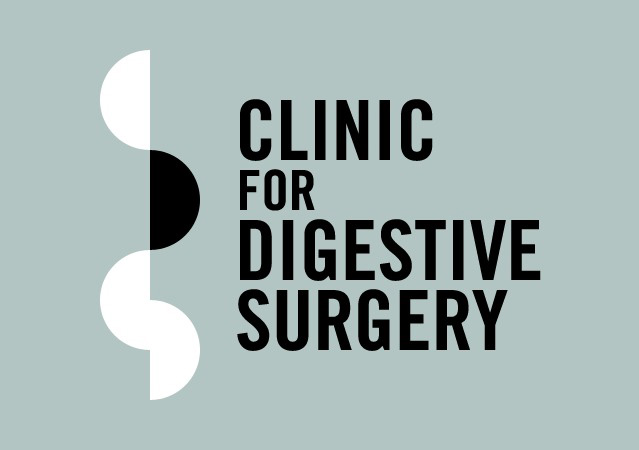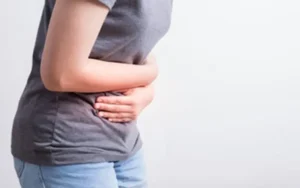Living with stomach ulcers can feel like a never-ending battle. The persistent pain, the discomfort after meals, the constant worry about what foods might trigger another flare-up—it can all become overwhelming. But here’s the good news: breaking the cycle of stomach ulcers and finding long-term relief is entirely possible. With the right treatment and lifestyle adjustments, you can manage and even eliminate ulcer pain for good.
If you’re tired of suffering in silence or have been managing ulcers for a while without much success, it’s time to take control of your health. Understanding the causes of stomach ulcers and knowing how to treat them effectively is key to breaking this painful cycle. Read on to discover everything you need to know about stomach ulcer treatment and how to get back to living your life without the constant discomfort.
What Are Stomach Ulcers?
Stomach ulcers, also known as peptic ulcers, are open sores that develop on the lining of your stomach or the upper part of your small intestine. These ulcers can vary in size and may cause a range of symptoms, including burning stomach pain, bloating, nausea, and indigestion. While ulcers are common and can affect anyone, certain factors increase the risk of developing them.
The two main causes of stomach ulcers are:
- Helicobacter Pylori (H. pylori) Infection: This bacteria weakens the stomach lining, making it more susceptible to acid damage, leading to ulcers.
- Nonsteroidal Anti-Inflammatory Drugs (NSAIDs): Long-term use of medications like ibuprofen or aspirin can irritate the stomach lining, contributing to ulcer formation.
Other factors that may increase the risk of developing stomach ulcers include excessive alcohol consumption, smoking, and chronic stress.
Common Symptoms of Stomach Ulcers
- Burning stomach pain: This is often felt between meals or at night when the stomach is empty.
- Bloating: A feeling of fullness or distension in the stomach area.
- Nausea or vomiting: Some people experience nausea or vomiting, especially after eating.
- Loss of appetite: The discomfort associated with ulcers can make eating less enjoyable.
- Heartburn or indigestion: Acid reflux may occur due to the irritation caused by the ulcer.
In more severe cases, ulcers can lead to bleeding, which might result in dark, tarry stools or vomit that looks like coffee grounds. If you experience any of these symptoms, it’s essential to seek medical advice promptly
How to Break the Cycle: Effective Stomach Ulcer Treatment
Stomach ulcers are not something you should ignore or try to tough out. Effective treatment is available, and the sooner you begin treatment, the sooner you can heal. Here are some of the most common and effective ways to break the cycle of stomach ulcers:
1. Eradicate the H. Pylori Bacteria
If your ulcer is caused by the H. pylori bacteria, treatment typically involves a combination of antibiotics. The goal is to eliminate the bacteria and allow your stomach lining to heal. Treatment regimens often last between 7 to 14 days, depending on the specific antibiotics prescribed.
2. Proton Pump Inhibitors (PPIs)
PPIs are commonly prescribed to reduce stomach acid production. By lowering the amount of acid in your stomach, these medications help create a more favourable environment for the ulcer to heal. PPIs such as omeprazole, lansoprazole, and esomeprazole are commonly used and are often taken for several weeks to allow full healing.
3. H2-Receptor Antagonists
These medications also reduce stomach acid but work slightly differently than PPIs. H2-receptor antagonists, such as ranitidine, are another option for controlling acid production and promoting healing.
4. Antacids and Cytoprotective Agents
Antacids can help neutralise stomach acid, providing quick relief from pain. Cytoprotective agents, such as sucralfate, help protect the stomach lining from further damage, creating a barrier over the ulcer while it heals.
5. Avoiding Irritants
If you regularly take NSAIDs, it may be necessary to stop or switch to alternative pain-relieving options. Over-the-counter pain relievers like ibuprofen can worsen stomach ulcers by irritating the stomach lining. Always consult your doctor before discontinuing or changing medications.
Lifestyle Changes to Support Ulcer Healing
In addition to medical treatment, making certain lifestyle changes can help you break the cycle of stomach ulcers and prevent future flare-ups. Here’s what you can do:
1. Adopt a Stomach-Friendly Diet
While there’s no one-size-fits-all diet for ulcers, eating foods that are gentle on your stomach can reduce irritation and promote healing. Consider incorporating:
- Fruits and vegetables: These are rich in vitamins and minerals that support the healing process.
- Lean proteins: Skinless chicken, turkey, fish, and tofu can provide the nutrients your body needs without irritating your stomach.
- Whole grains: Oats, brown rice, and whole-wheat bread are good sources of fibre that can aid digestion.
Avoid spicy, acidic, and fried foods, as well as caffeinated beverages, which can increase stomach acid production and exacerbate symptoms.
2. Quit Smoking
Smoking is a significant risk factor for developing ulcers and can impair the healing process. If you smoke, quitting is one of the best things you can do to improve your overall health and prevent further ulcer issues.
3. Manage Stress
Chronic stress can trigger or worsen ulcers by increasing stomach acid production. Incorporating stress-reducing practices like meditation, yoga, or even regular physical exercise can help minimise flare-ups.
4. Limit Alcohol Consumption
Excessive alcohol intake can irritate the stomach lining, making ulcers worse. If you drink, limit your consumption and choose beverages that are less likely to cause irritation, such as water or herbal teas.
Take the First Step Towards Healing Today
Stomach ulcers don’t have to be a permanent part of your life. With the right treatment and lifestyle changes, you can break the cycle and enjoy lasting relief. Don’t let ulcers hold you back any longer—take charge of your health today.
With the right guidance and medical treatment, you can overcome the discomfort of stomach ulcers and live your life to the fullest once again. Let Digestive Clinic help you take the first step towards a pain-free future.
Ready to break free from the pain of stomach ulcers? Contact Digestive Clinic for treatment and personalised care that gets results.










